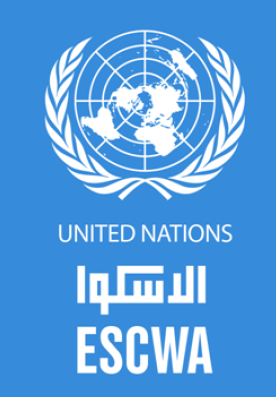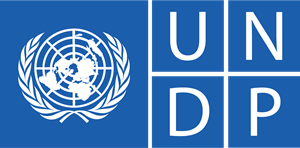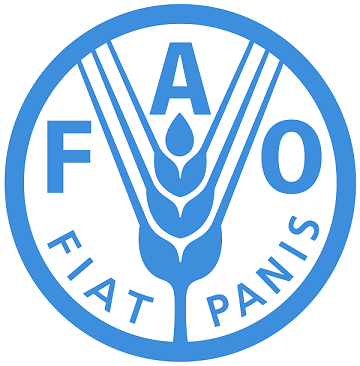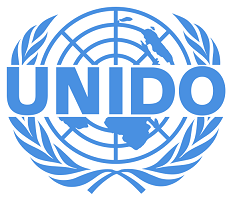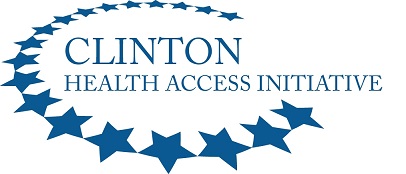Duties and Responsibilities
1. Background and Objective In recent years, the Arab region experienced increasing shares of debt and debt service relative to output that limits fiscal space for development expenditure and the SDG financing. It is not just the rising debt but also the changing composition of debt, such as rising share of external debt from private creditors, that is becoming a growing concern for debt sustainability, particularly for highly indebted middle-income countries (MICs) and the least developed countries (LDCs). Several reasons are behind the debt accumulation and its changing composition in the MICs and LDCs, including the negative impacts of the global economic slowdown and persistent trade deficits, adverse impacts of crises in several parts of the region and loss of revenues, and commodity price fluctuations that widened fiscal shortfalls in oil and commodity export dependent countries of the region. The adverse economic consequence of the COVID-19 is another cross-border challenge that plummeted public revenues and liquidity at hands of governments to support human security of their people and stability of economies, thus leading to increased borrowing from external finance. In this background, the global pandemic has accentuated the fiscal risks by increasing the fiscal shortfalls and increasing debt burdens for most countries in the Arab region. Addressing public debt sustainability, including solvency challenges, is a prime driver of macroeconomic stability and growth. While debt financing is not the sole engine of financing in the context of the Addis Ababa Agenda (AAAA) on financing for development, and it should not be the sole engine of financing, it remains as one of the key sources of fiscal space and financing the SDGs. Unfortunately, the decisions leading to debt finance are often not well strategized regarding the choice of debt instruments, different ways of debt financing and terms and conditions that can affect contingency obligations and debt sustainability in the future. The LDCs and MICs being often at the receiving end of negotiations, and without having adequate tools to inform their decisions, continue to face greater risks of potentially unsustainable debt service in parallel with their financing needs for meeting the SDGs. Against this background, ESCWA embarked on a project titled “Sustainable Debt Financing Strategies to Enhance Fiscal Space, Provide Financing for the SDGs and Address the Repercussions of COVID-19 in the Arab Region” to support and provide technical assistance to member States in the region in improving their capacity toward more effective debt management practices including improving debt transparency and reporting, better understanding mechanisms of debt relief and reduction, debt instruments, their risks and linkages to meeting contingencies and debt sustainability in the medium and long term. The main expected results of the project are the improved capacity of policymakers to better understand debt statistics, debt instruments and their risks, which can inform their decisions to establish medium to long term strategy on debt finance toward improving fiscal space and financing for the SDGs. The result will be demonstrated by evidence from a sample of pilot countries efforts on debt management strategies with use of the tools developed by the project. 2. Duties and Responsibilities Purpose of the Evaluation Evaluations at ESCWA strive to demonstrate the difference made by its work and its impact on member States and their citizens. This evaluation will aim to determine how the work undertaken in the Debt Financing Strategies project contributed to achieving its intended results, the pathway to these results, and the elements that contributed most significantly to their achievement. It will also consider any unintended results — positive or negative — that emerged during implementation. The evaluation will serve three main purposes: • Evidence-based decision-making: Provide a foundation for strategic planning and risk management. • Accountability: Demonstrate performance and results to ESCWA’s Executive and member States, in line with the Commission’s mandate. • Organizational learning: Identify lessons learned and actionable recommendations to strengthen future ESCWA projects in debt management, fiscal policy, and SDG financing. The evaluation will be conducted in accordance with ESCWA’s Evaluation Policy (2025), the UNEG Norms and Standards for Evaluation, and the Development Account Evaluation Guidelines. It will integrate best practices for promoting gender equality, human rights, disability inclusion, and environmental sustainability. The primary audiences are ESCWA, UNCTAD, UN Country Teams in target countries, and relevant government institutions in ESCWA member States. The evaluation will be facilitated and coordinated by ESCWA’s Strategic Planning, Accountability, Results and Knowledge (SPARK) Section. Scope of the Evaluation The evaluation will be forward-looking and will objectively and systematically assess the performance of the project in terms of its relevance, coherence, effectiveness, efficiency, impact, and sustainability. Furthermore, the evaluation will assess the extent to which gender, human rights, disability inclusion, environmental concerns, and other cross-cutting issues were incorporated or mainstreamed into the project. The evaluation will cover the period from January 2022 to December 2025. Evaluation Criteria The following key evaluation questions per criteria will guide the evaluation. The evaluator is expected to refine evaluation questions where necessary and to include the refinement in the Inception Report. Relevance • How did the project team determine the strategic needs and priorities of member States in its project design? • How were the intended results of the project aligned with the strategic needs and priorities of member States, the sustainable development goals, and national and regional development agendas? • How were the identified results aligned with other stakeholders’ strategic needs and priorities? • How was the log frame translated to ensure that the activities carried out were relevant and contributed to achievement of the intended result(s)? • How were planned and implemented activities designed and sequenced to ensure a conscious consideration of the intended result? Effectiveness • What evidence is available to support the achievement of the results identified? • Which of the activities undertaken by the project team directly contributed to the identified results? How did these activities contribute to the results? • To what degree can the achievement of results be attributed to the intervention? • How did the work of stakeholders contribute to the achievement of the identified results? • Which other factors have contributed to the achievement of the identified results? • Would the results have been achieved regardless of the project being implemented? • How were key partnerships integrated in the delivery of the project to maximise the achievement of results? Efficiency • Were the planned activities considered and delivered with the end results in mind? How did this shape the process? • What, if any, adjustments were made during the project to optimize the achievement of results? • What, if any, considerations were made in terms of the most efficient way of delivering activities (choice of modality, expertise available, etc.) • To what extent were partnerships leveraged and/or enhanced to utilize additional strategic expertise? Impact • What, if any, high-level effects did the project cause (such as changes in norms or systems)? • How did the project ensure that all the intended target groups, including the most disadvantaged and vulnerable, benefitted equally from the intervention? • How transformative was the project – did it create enduring changes in norms – including gender norms – and systems, whether intended or not? • To what extent did the intervention lead to other changes, including “scalable” or “replicable” results? Sustainability • Given a similar context, could the identified results of the project be replicated? • Which of the activities identified as contributing to the identified results of the project provided ongoing benefits for stakeholders? • What evidence is available to indicate that the results of the project can be maintained by stakeholders? Gender, Human Rights, Disability Inclusion, and Environmental Issues • To what extent were issues of gender, human rights, disability inclusion, and the environment incorporated into the design, planning, implementation, and monitoring and evaluation practices of the project, as well as the results achieved? To what extent did the project respond to and affected the rights, needs and interests of different stakeholders, including women, men, youth, people with disabilities and other marginalized groups? Evaluation Methodology The evaluator is expected to identify the main results achieved through the project, as established by both the project team and key stakeholders, and develop a Theory of Change (ToC) for these results. The causal links postulated in the ToC should then be used to theorise a plausible causal mechanism, which should be tested using all available evidence, to evaluate the influence of ESCWA’s work on results achieved through the project. The evaluator is expected to ensure a mixed method (qualitative and quantitative), inclusive and participatory approach, with adequate triangulation across methods, to arrive at credible, reliable, and unbiased findings. The evaluator will also ensure that all aspects of the evaluation are gender and human rights sensitive (including a special focus on the rights with person with disabilities). In addition, the evaluator must ensure that they always comply with the UNEG Ethical Guidelines for Evaluation during the conduct of the evaluation. The above methodology is indicative. The evaluator is expected to build upon it and present a robust evaluation methodology within the inception report, including addressing and refining the evaluation questions. Management and Governance Arrangements SPARK will oversee management of the evaluation through an evaluation officer/s, who will act as the evaluation manager/s. This role will include recruiting the evaluator/s; serving as the main port-of-call for the evaluator/s and for internal and external stakeholders; recording the feedback of the project team and effectively integrating it into the evaluation exercise; monitoring the budget and the correct implementation of the work-plan; ensuring quality assurance; etc. The support of the organization and project’s senior management is key for the success of the evaluation, particularly during the recruitment of the evaluator/s, collection of documents for desk review, identification of stakeholders and arrangement of interviews, focus groups or surveys. Quality Assurance Mechanism The evaluator will employ a quality assurance mechanism of her/his preference (either an internal or an external system can be used), which will provide quality checks throughout the evaluation process. This quality assurance mechanism will be indicated in the Inception Report and in the Final Evaluation Report. In addition, ESCWA will review the evaluation report prior to finalization to ensure that it aligns with the UNEG Quality Checklist for Evaluation Reports , particularly with reference to the quality of recommendations. Evaluation Ethics The evaluation will be conducted in accordance with the principles outlined in the UNEG Ethical Guidelines for Evaluation; and all rights and confidentiality of information providers will be prioritized and safeguarded as per UNEG Ethical Guidelines for Evaluation.
Qualifications/special skills
A Master's degree in management, evaluation, or related area is required. All candidates must submit a copy of the required educational degree. Incomplete applications will not be reviewed. A minimum of 7 years’ experience undertaking impact evaluations, including of projects and/or evaluations working with Arab governmental bodies, is required. Proven competency in quantitative and qualitative research methods, particularly self-administered surveys, document analysis, and informal and semi-structured interviews is required. Work experience in the UN environment is desirable. A high level of expertise in the distilling, communication and reporting of findings, recommendations, best practices, and lessons learned is desirable. Excellent oral and written communication skills and the ability to effectively convey complex information in a clear and concise manner to both governmental and UN audiences is desirable.
